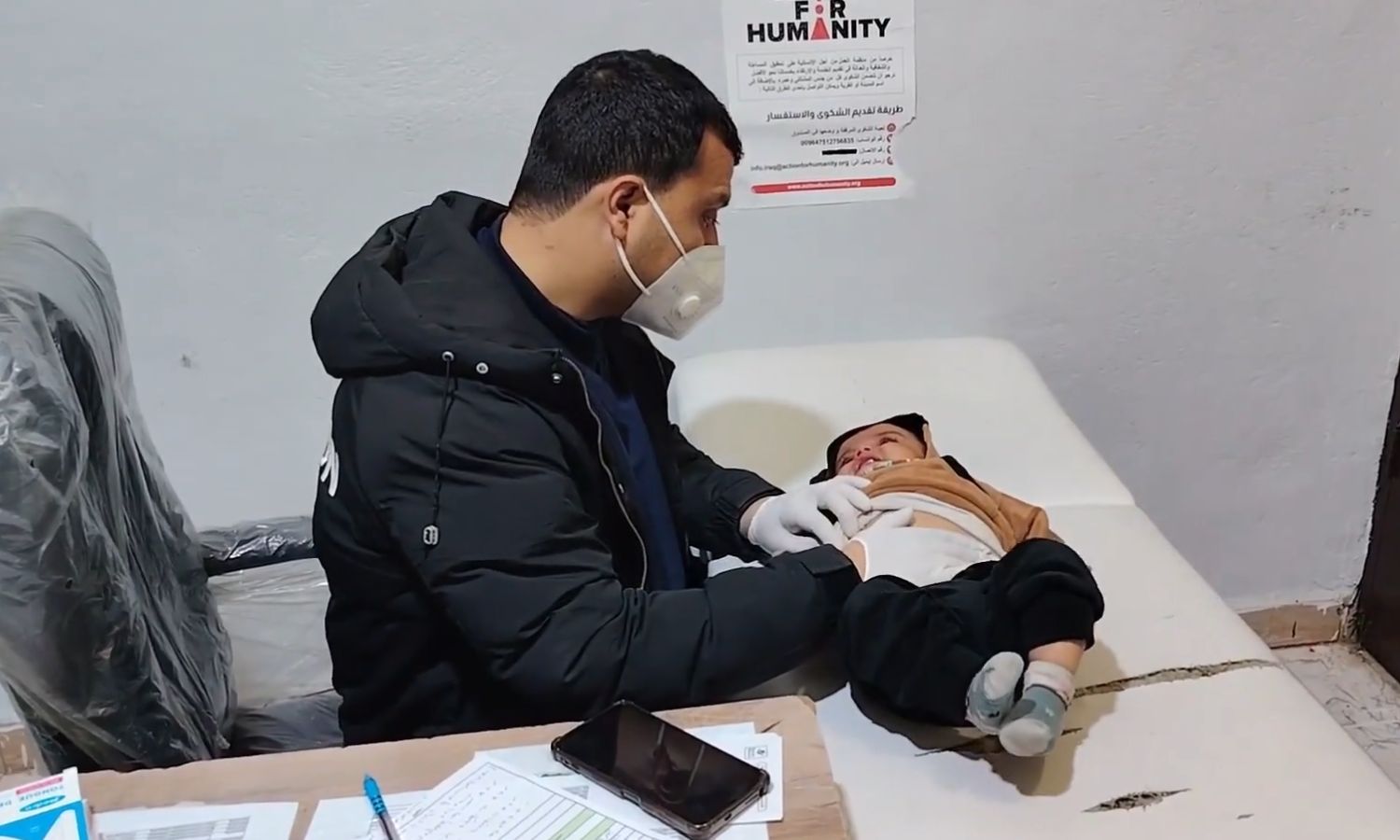



Deir Ezzor – Obadah al-Sheikh
Al-Shuhail General Hospital in eastern rural Deir Ezzor suffers from recurrent power outages, which hinder the provision of medical services and endanger patients’ lives.
For the past two months, the power outages have continued, directly affecting the operation of essential medical devices such as ventilators and heart monitoring equipment, with calls for a definitive solution to the problem.
The hospital is located in areas controlled by the Autonomous Administration of North and East Syria (AANES) and was opened by the Health Authority in July 2019. It contains several departments, including emergency, outpatient clinics, general surgery, gynecology, obstetrics, and clinics for children and internal medicine.
It is equipped with an oxygen station to meet the hospital’s needs and serves about 250,000 people in rural Deir Ezzor.
The power cuts impact the hospital completely, especially the intensive care unit, leading to the disruption of operating rooms, which delays essential surgical procedures, and affects laboratories and the blood bank, postponing necessary tests and analyses for patients.
In addition to the medical devices, heating systems stop working during power outages, increasing the suffering of patients and their families due to the cold, according to patients interviewed by Enab Baladi at the hospital.
Residents of al-Shuhail have called on the relevant authorities to urgently intervene and find a lasting solution to the chronic power outage problem, and to provide generators for the hospital to ensure its continued operation and the provision of necessary medical services to patients.
Majid al-Talaa, a resident of al-Shuhail, suffers from a chronic illness requiring ongoing medical care, but the power outages hinder his access to necessary care and increase his pain, as he stated.
A doctor at the hospital (who preferred to remain anonymous because he is not authorized to speak to the media) indicated that the hospital administration is doing its best to provide medical services to patients under difficult circumstances; however, the frequent power outages complicate their mission and endanger patients’ lives, as they provide treatment to over 500 patients daily.
The doctor added to Enab Baladi that the outages have prevented the hospital from operating the oxygen station, radiology equipment, and refrigerators in the lab and storage, noting that the hospital needs to supply large generators to ensure continuity of operations.
He mentioned that the hospital administration had submitted several requests to the Energy Directorate of the Civil Council of Deir Ezzor for a service line similar to that of water stations, but the requests were met with rejection on the grounds of violations by residents.
The medical sector in Deir Ezzor city is facing significant challenges, whether in the areas governed by AANES in the eastern countryside or in those managed by the Damascus government in both the city center and its surrounding western regions.
The sector is witnessing a shortage of medical staff and equipment, while consultation fees and medicine prices are high compared to residents’ income, with many types of medicines unavailable.
Many medical specialties are absent from the region, most notably neurology and cardiac surgeries, and doctors continue to face persistent threats, prompting them to leave the area in search of a safer location to continue their work.
According to a report by Enab Baladi, Dr. Nasr al-Alwan, the head of the Doctors’ Syndicate in Deir Ezzor, stated that the medical situation in Deir Ezzor governorate has been assessed by the Ministry of Health as “very bad and below zero.”
He noted that the majority of hospitals in Deir Ezzor are destroyed, medical equipment is dilapidated, and there is a shortage of staff in terms of both numbers and experience.
if you think the article contain wrong information or you have additional details Send Correction